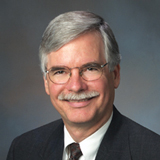According to the NCCN, an alliance of 30 leading academic cancer centers in the United States, the data suggest that although patients with cancer are not more susceptible to infection from the new coronavirus than other people, they do have much worse outcomes. “Prevention is thus the key for oncology patients,” Dr Carlson said.
“COVID-19 changed cancer care almost overnight,” he said. The care delivery centers in the NCCN are together taking an aggressive approach to screening for the virus and are sharing approaches and best practices. Comprehensive evaluation of patients and visitors to the cancer centers includes temperature monitoring, symptom screening, contact screening, and triage to an evaluation unit. Some facilities are not allowing patients to have accompanying visitors and are requiring masks for everyone entering treatment centers.
The NCCN centers have also implemented changes in the care delivery paradigm, including delaying appointments, using telehealth for follow-up and surveillance appointments, prioritization of care, and the separation of coronavirus-positive patients to specialized units.
The workforce and workplace are also having to adapt to the new circumstances, said Dr Carlson. In addition to shortages of equipment, the workforce is being depleted by infection or quarantine, and the physical and emotional stress of the pandemic is taking a toll.
Dr Basu said that providers are seeing a tremendous amount of confusion by patients about the messaging during this crisis. As a result, providers are fielding hundreds and thousands of phone calls on a broad range of questions about what patients have seen in the news.
Another area of concern is the shortage of provider protective equipment (PPE); consequently, we’re seeing price gouging for PPE that is so crucial to the protection of healthcare providers. Dr Basu said that in some cases, there has been an 800% markup on critical items, such as N95 masks.
Finally, he said that some large community oncology centers are engaged in debates as they confront new situations, including how to handle patients who have crossed state lines for care and whether to treat patients from neighboring hot spots.
“This is really a time for providers to band together to show the nation how we take care of patients,” he said.
Mr Downs discussed the concerns of smaller healthcare systems and hospitals, and the impact the virus is having on their operations.
Smaller systems have different needs and challenges than larger systems, he said. Many small healthcare systems are already overextended and are having difficulty maintaining operating margins and staying fully staffed. Some are struggling with new challenges in understanding telehealth or adapting to new testing procedures and care coordination across departments.
Many systems have large populations of patients who require social services and patients experiencing difficulties with insurance coverage or clinical matters, all of which further strain limited resources. This will become a crisis if the predictions in the acceleration of cases bear out.
“We want to keep the big picture in view,” Mr Downs said.






